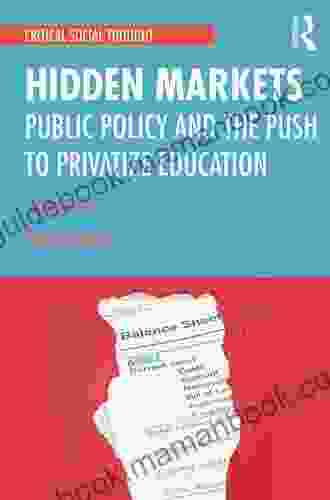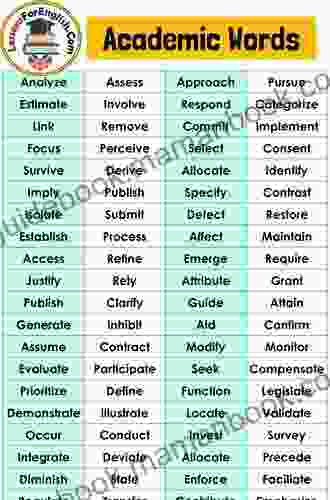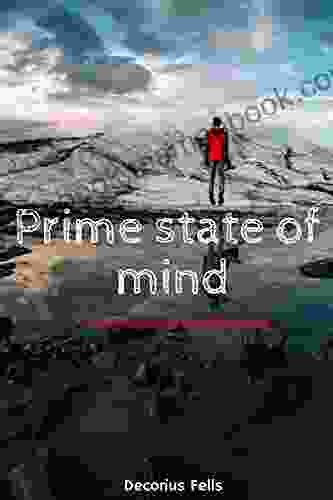Public Policy and the Push to Privatize Education: A Critical Social Thought Analysis

4.3 out of 5
| Language | : | English |
| File size | : | 3268 KB |
| Text-to-Speech | : | Enabled |
| Enhanced typesetting | : | Enabled |
| Word Wise | : | Enabled |
| Print length | : | 226 pages |
| Screen Reader | : | Supported |
Education is a fundamental human right and a key driver of social and economic development. However, in recent years, there has been a growing push to privatize education. This trend has been driven by a number of factors, including the belief that private schools are more efficient and effective than public schools, and the desire to reduce government spending on education.
The privatization of education has a number of potential benefits. Private schools may be able to offer more specialized programs and services than public schools, and they may be more responsive to the needs of individual students. However, there are also a number of potential drawbacks to the privatization of education. Private schools are typically more expensive than public schools, and they may not be accessible to all students. Additionally, private schools are not subject to the same regulations as public schools, which may lead to lower standards of education.
The debate over the privatization of education is complex and there is no easy answer. In this article, we will explore the public policy driving privatization in education and its implications for equitable access to quality education.
Public Policy Driving Privatization
The privatization of education has been driven by a number of public policies, including vouchers, charter schools, and tax credits.
Vouchers
Vouchers are government-funded scholarships that can be used to pay for private school tuition. Vouchers have been a popular way to promote school choice, and they have been shown to increase enrollment in private schools. However, vouchers have also been criticized for creating a two-tiered system of education, with private schools receiving more funding than public schools.
Charter Schools
Charter schools are public schools that are operated by private organizations. Charter schools are often more flexible than traditional public schools, and they may offer specialized programs and services. However, charter schools are also not subject to the same regulations as public schools, which may lead to lower standards of education.
Tax Credits
Tax credits are tax breaks that are given to individuals or organizations that donate to private schools. Tax credits have been used to promote school choice, and they have been shown to increase donations to private schools. However, tax credits have also been criticized for benefiting wealthy individuals and organizations, who are more likely to make large donations.
Implications for Equitable Access to Quality Education
The privatization of education has a number of potential implications for equitable access to quality education.
Reduced Access for Low-Income Students
Private schools are typically more expensive than public schools, and they may not be accessible to all students. This is a particular concern for low-income students, who are more likely to rely on public education. The privatization of education may lead to a decrease in access to quality education for low-income students.
Increased Segregation
The privatization of education may also lead to increased segregation in schools. Private schools are often more selective than public schools, and they may be more likely to admit students from affluent backgrounds. This may lead to a situation where private schools become increasingly exclusive, while public schools become increasingly segregated.
Lower Standards of Education
The privatization of education may also lead to lower standards of education. Private schools are not subject to the same regulations as public schools, and they may be more likely to cut corners to save money. This may lead to a decrease in the quality of education.
The privatization of education is a complex issue with a number of potential benefits and drawbacks. It is important to consider the implications of privatization for equitable access to quality education before making any decisions about the future of education policy.
In the United States, there has been a growing push to privatize education. This trend has been driven by a number of factors, including the belief that private schools are more efficient and effective than public schools, and the desire to reduce government spending on education.
The privatization of education has a number of potential benefits. Private schools may be able to offer more specialized programs and services than public schools, and they may be more responsive to the needs of individual students. However, there are also a number of potential drawbacks to the privatization of education. Private schools are typically more expensive than public schools, and they may not be accessible to all students. Additionally, private schools are not subject to the same regulations as public schools, which may lead to lower standards of education.
The debate over the privatization of education is complex and there is no easy answer. In this article, we have explored the public policy driving privatization in education and its implications for equitable access to quality education. We have seen that the privatization of education has a number of potential benefits and drawbacks, and it is important to consider these factors carefully before making any decisions about the future of education policy.
4.3 out of 5
| Language | : | English |
| File size | : | 3268 KB |
| Text-to-Speech | : | Enabled |
| Enhanced typesetting | : | Enabled |
| Word Wise | : | Enabled |
| Print length | : | 226 pages |
| Screen Reader | : | Supported |
Do you want to contribute by writing guest posts on this blog?
Please contact us and send us a resume of previous articles that you have written.
 Top Book
Top Book Novel
Novel Fiction
Fiction Nonfiction
Nonfiction Literature
Literature Paperback
Paperback Hardcover
Hardcover E-book
E-book Audiobook
Audiobook Bestseller
Bestseller Classic
Classic Mystery
Mystery Thriller
Thriller Romance
Romance Fantasy
Fantasy Science Fiction
Science Fiction Biography
Biography Memoir
Memoir Autobiography
Autobiography Poetry
Poetry Drama
Drama Historical Fiction
Historical Fiction Self-help
Self-help Young Adult
Young Adult Childrens Books
Childrens Books Graphic Novel
Graphic Novel Anthology
Anthology Series
Series Encyclopedia
Encyclopedia Reference
Reference Guidebook
Guidebook Textbook
Textbook Workbook
Workbook Journal
Journal Diary
Diary Manuscript
Manuscript Folio
Folio Pulp Fiction
Pulp Fiction Short Stories
Short Stories Fairy Tales
Fairy Tales Fables
Fables Mythology
Mythology Philosophy
Philosophy Religion
Religion Spirituality
Spirituality Essays
Essays Critique
Critique Commentary
Commentary Glossary
Glossary Bibliography
Bibliography Index
Index Table of Contents
Table of Contents Preface
Preface Introduction
Introduction Foreword
Foreword Afterword
Afterword Appendices
Appendices Annotations
Annotations Footnotes
Footnotes Epilogue
Epilogue Prologue
Prologue Octavia Randolph
Octavia Randolph Velox Books
Velox Books Craig Wallin
Craig Wallin Alexander Weinstein
Alexander Weinstein David Gilman
David Gilman David Matthew Barnes
David Matthew Barnes Julia Watkins
Julia Watkins Philip K Allan
Philip K Allan Eric Gadus
Eric Gadus Deanna Sclar
Deanna Sclar Clayton M Christensen
Clayton M Christensen Daniel Peterson
Daniel Peterson Eric Keegan
Eric Keegan The Medieval Murderers
The Medieval Murderers Donald Bain
Donald Bain Tanya Markul
Tanya Markul Stephen Llewelyn
Stephen Llewelyn Andy Smarick
Andy Smarick Tyler Merritt
Tyler Merritt Paul Murphy
Paul Murphy
Light bulbAdvertise smarter! Our strategic ad space ensures maximum exposure. Reserve your spot today!

 Adrien BlairHow To Lose Weight And Keep Yourself Healthy By Eating Big Meals And Skipping...
Adrien BlairHow To Lose Weight And Keep Yourself Healthy By Eating Big Meals And Skipping... Ashton ReedFollow ·11.7k
Ashton ReedFollow ·11.7k James GrayFollow ·13.5k
James GrayFollow ·13.5k Devin CoxFollow ·14k
Devin CoxFollow ·14k Ira CoxFollow ·6.8k
Ira CoxFollow ·6.8k Darius CoxFollow ·9.5k
Darius CoxFollow ·9.5k Don ColemanFollow ·8.1k
Don ColemanFollow ·8.1k Ken FollettFollow ·5.9k
Ken FollettFollow ·5.9k George MartinFollow ·2.7k
George MartinFollow ·2.7k
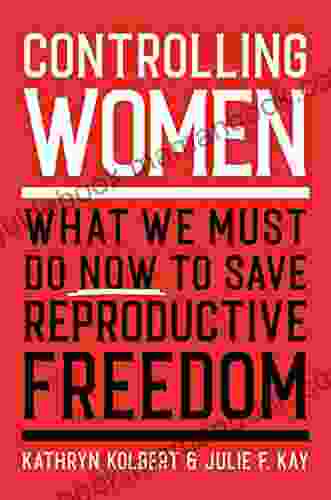
 Leslie Carter
Leslie CarterWhat We Must Do Now To Save Reproductive Freedom
Roe v. Wade, the landmark...

 Cade Simmons
Cade SimmonsThe Unbreakable Bond: Unveiling the Connection Between...
In the realm of...

 Roy Bell
Roy BellFull Contact Chapter Five: The Final Chapter of the Hatch...
In this gripping to the Hatch saga, we...

 Fred Foster
Fred FosterUnveiling the Tale of the Genpei Wars: A Comprehensive...
Deep within the annals of Japanese history,...
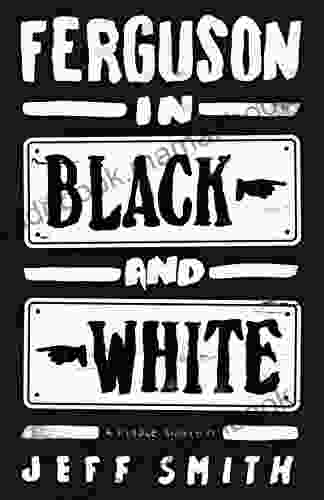
 Jaden Cox
Jaden CoxFerguson in Black and White: A Profound Examination of...
The Ferguson tragedy, sparked by the fatal...
4.3 out of 5
| Language | : | English |
| File size | : | 3268 KB |
| Text-to-Speech | : | Enabled |
| Enhanced typesetting | : | Enabled |
| Word Wise | : | Enabled |
| Print length | : | 226 pages |
| Screen Reader | : | Supported |


